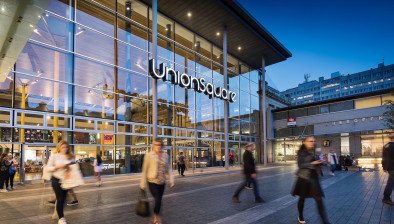Scottish shopping centre owner Hammerson sees losses triple to £573m
Hammerson, the owner of both the Glasgow Silverburn and Aberdeen Union Square shopping centres, has seen its pre-tax losses plummet to £573.8 million in the year to December 31st.

The company has pointed to a drop in rents due to a rise in Credit Voluntary Agreement (CVAs) and store administrations within its units.
The firm saw losses grow from a £173.3m deficit in 2018 as it sold sites to alleviate its financial problems.
Hammerson said in its 2019 full-year results, that occupancy levels within its buildings remained high at 97%, however, the landlord has seen like-for-like rental income drop by 6.7% as renters such as Arcadia Group who owns Topshop and Burtons, and Debenhams sought rent cuts.
Throughout the year, Hammerson saw 33 of its retailer partners fall into administration or undergo a CVA restructuring deal, affecting a total of 94 units across its locations.
The retail landlord also saw new leasing volumes drop, generating £11.2m in income in 2019 compared with £14.3m the year before. Earnings were affected by Hammerson’s disposals programme, which accumulated £542m during the year, surpassing its £500m target.
Hammerson also announced its largest disposal in ten years last week, as it sold off its nine remaining retail parts for £455m. The sale included that of Falkirk’s Central Retail Park.
David Atkins, chief executive, said: “We have taken decisive action over the past 12 months to reduce debt and significantly reshape the portfolio. Against a challenging retail and investment backdrop, we have exceeded our 2019 disposal target, exited the retail parks sector as we said we would and reduced debt by a third. This delivered nearly £1bn of transactions in the process.
“With the outlook for the UK retail market remaining uncertain, we believe we should maintain our focus on reducing debt during 2020. In strengthening our balance sheet further, we will create a more resilient business and also generate significant liquidity which could, at the appropriate time, be deployed to create enhanced returns for shareholders.”






